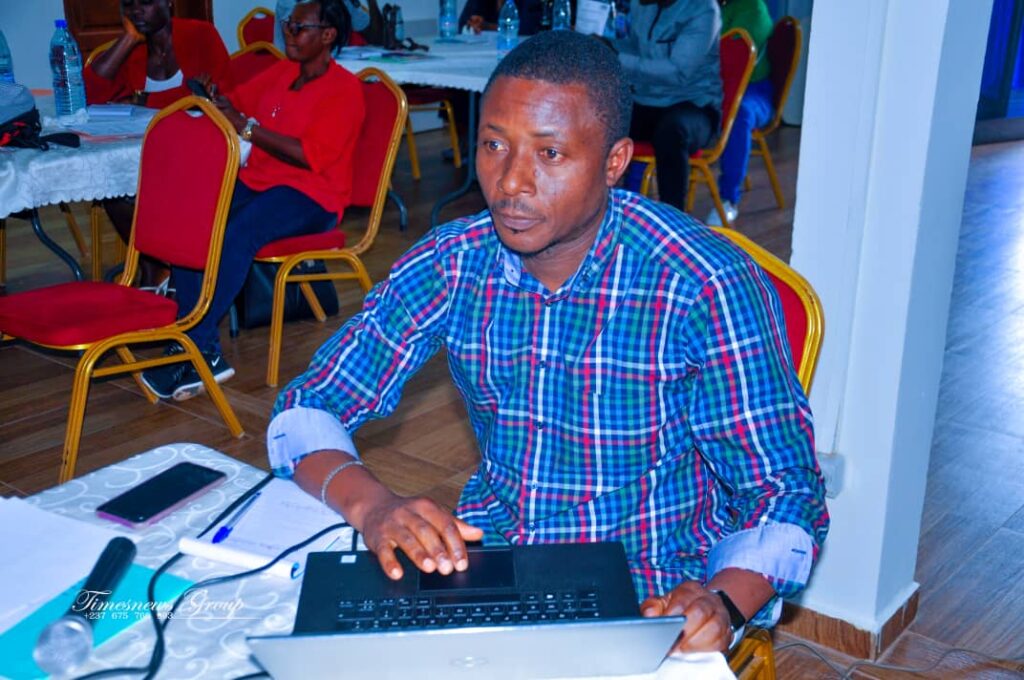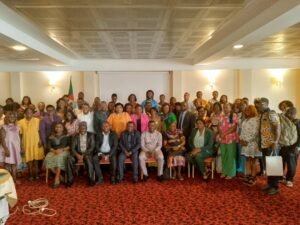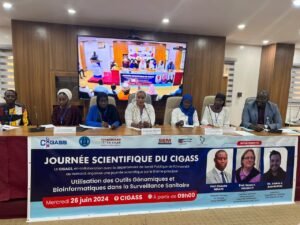Non-Governmental Organization specialized in Sexual and Reproductive Health, FESADE recently launched in Bertoua, East region its new project dubbed “JASRAC”.

In a bid to improve access to sexual and reproductive health services as well as contraceptive products among adolescents and young people, and by the way achieve key indicators outlined in Cameroon’s investment case of the Global Financing Facility (GFF), the non-governmental organization known as “Femmes-Santé-Développement” in its French acronym FESADE, has launched on September 27, 2023 in Bertoua, East region a new project that will help to tackle some of these disparities and inequalities.
To launch the project dubbed: “Jeunes en Action pour la Santé Sexuelle et Reproductive des Adolescents au Cameroun (JASRAC)”,FESADE thanks to its technical and financial partner, Population Action International (PAI), gathered close to 30 participants in Bertoua. The participants selected were officials of the Ministry of Secondary Education, the Ministry of Youth Affairs and Civic Education, the Ministry of Women’s Empowerment and the family, key partners, the Ministry of Public Health, and representatives of youth action movements and associations of the host region.
It was disclosed during this come-together that, the East region remains among the regions which are seriously crippled in terms of sexual and reproductive health services.
From August to September 2023, a study was carried out by FESADE’s consultant, Jean Mirabeau Mahop to address the critical issues affecting young people in this part of the country.

According to Jean Mirabeau Mahop, the study carried out in the health districts of Bertoua, Garoua-Boulai, Batouri, and Doume has shown limited access to SRH services by youths and adolescents. And, in the East region, one key issue highlighted in the study is the fact that young people involve themselves in sexual intercourse at early ages.
Mr. Mahop said the youths and adolescents of the East region do not go to hospitals. There is a need to educate and sensitize them as well as to show them the benefits of having a safe sexual life.
Valerie Gystiane Tsemo, Head of this project said the East region was targeted due to several gaps and inequalities which have been observed and unveiled in case studies.

She said: “We have identified in our study several gaps which young people face and this concerns access to sexual and reproductive health services, contraceptive products and youths of this region face a lot of problems which have to be braced up. The project will be conducted mainly by youth associations. These youth associations are at the heart of the project and are expected to uplift this new challenge. And I wish to seize this occasion to express our thanks to Population Action International, PAI. It is an organization with innovative actions and which needs effective results.”
Unveiling the challenges of this new project to support government’s actions in the East region, the Executive Coordinator of FESADE, Urbain Abega said it is a fresh impetus and praised the confidence bestowed on his organization by PAI.

Urbain Abega believes that thanks to the technical and financial support of PAI, several unmet needs will be driven and youth associations have an open opportunity to showcase their know-how.
At the end of the meeting and workshop, traditional leaders, government’s representatives and leaders of youth associations have expressed the will to effectively contribute and boost efforts for impactful results in this project. They have praised FESADE for implicating them in such an important project.
Zakary Nyam, leader of a youth movement said JASRAC project comes in to reinforce underground activities carried so far, and will help mobilize a good number of youths and adolescents for outreach campaigns to be launched in some educative centers.
Meeting the Unmet Needs
According to Health Experts, one of the countries in sub-Saharan Africa where adolescent pregnancies are recognized as a public health challenge is Cameroon. Adolescent girls contribute to nearly 14 % of all childbirths in the country, 2.83 % of them being girls under the age of 16 (Kongnyuy et al. 2008, 149; Tebeu et al. 2010, 1-4; UNFPA Cameroon 2012, 11). It is recognized that childbearing begins early in Cameroon, with 29 % of adolescent girls either pregnant or already having one child (Institut National de la Statistique 2005, 1). For some of these young mothers, their pregnancies are intended and wanted, but for many, they are not.
Evidence shows that Cameroonian adolescents follow a worldwide trend of having their sexual intercourse debut at an early age, with the mean age for their first sexual experience being at the age of 15.
Additionally, many adolescents are engaged in unprotected sexual practices, combined with having multiple partners. This puts them at greater risk of unwanted pregnancies and also leads them to have unsafe abortions (Foumane et al. 2013). In Cameroon induced abortion is restricted by law, so the majority of abortions are performed under unsafe conditions. Numbers from the years 2000 and 2003 showed an estimated 20-29 unsafe abortions per 1000 women aged 15- 49 in Cameroon (Schuster 2010, 139).
Also, it should be noted that Cameroon suffers regional disparities in health and nutrition outcomes with the three northern regions and the East region performing considerably worse than the national averages. It has been indicated that the proportion of girls between the ages of 15 to 19 who have begun childbearing is 44.2 percent in the East region and 23.4 percent in the Far-North region while in Yaounde, the rate is estimated at 7.6 percent.
About Population Action International
Population Action International (PAI) is an international, non-governmental organization that uses research and advocacy to improve global access to family planning and reproductive health care.
One of the key missions of PAI is to ensure that every person has the right and access to sexual and reproductive health so that humanity and the natural environment can exist in balance with fewer people living in poverty.

Elise Kenimbeni





